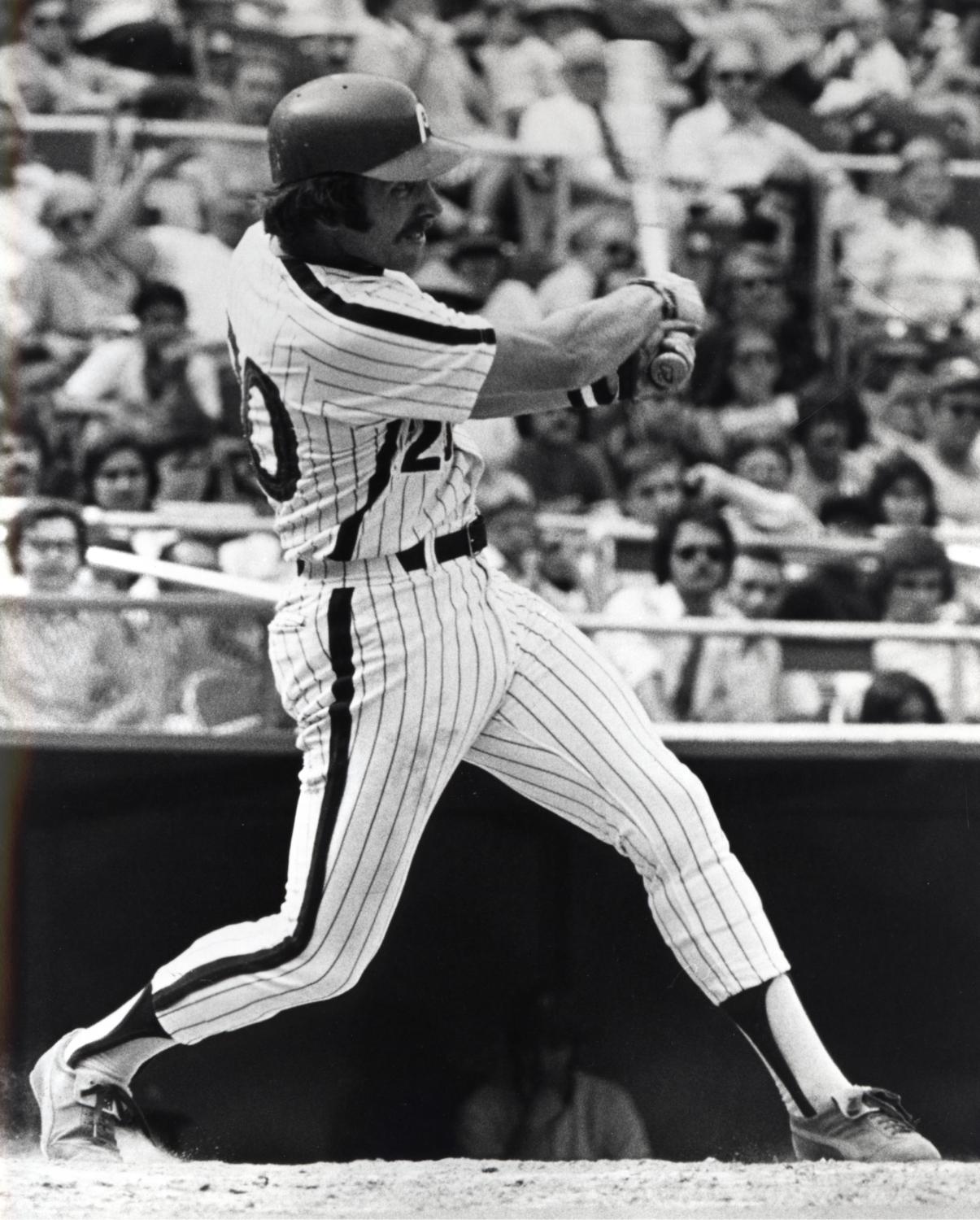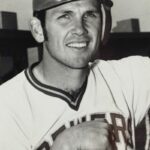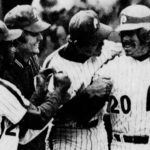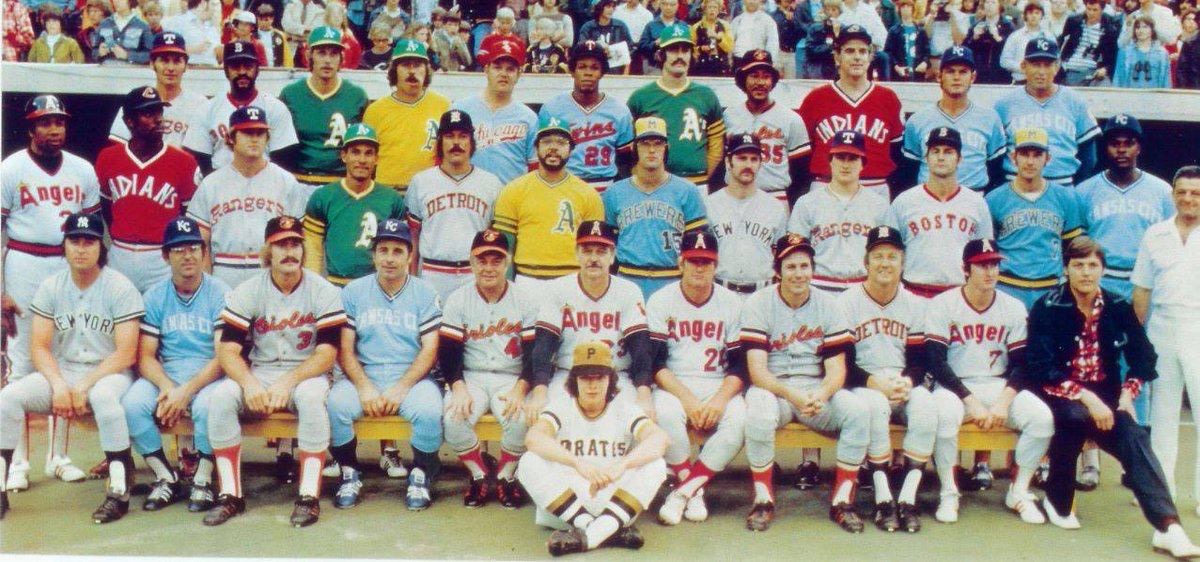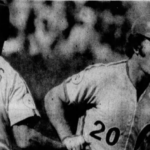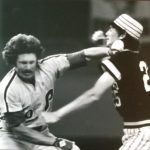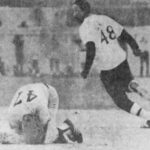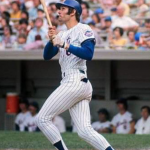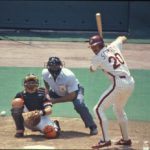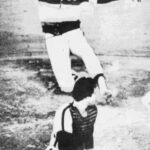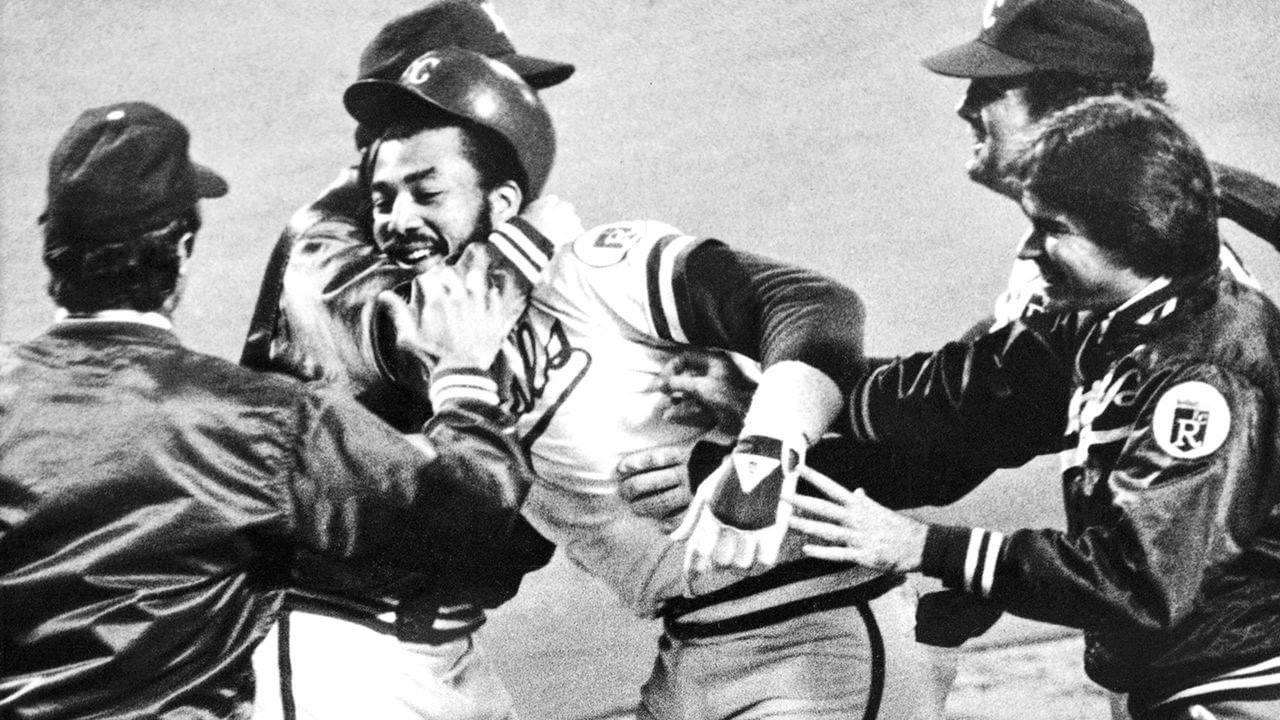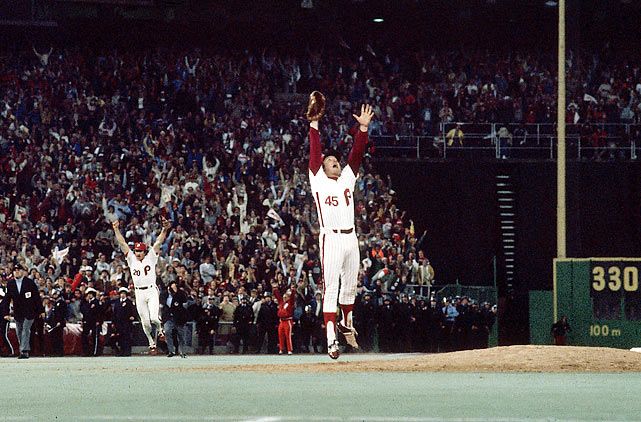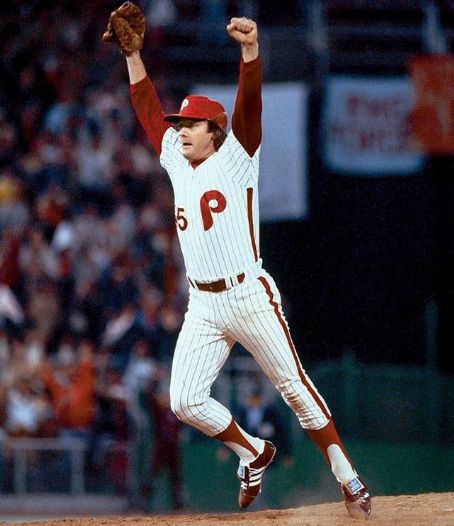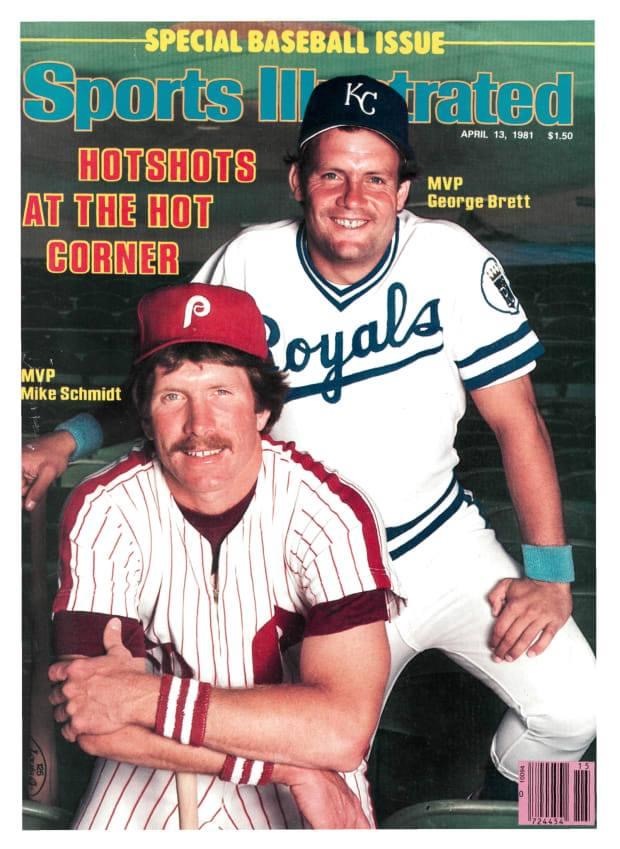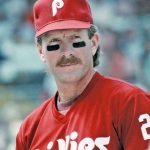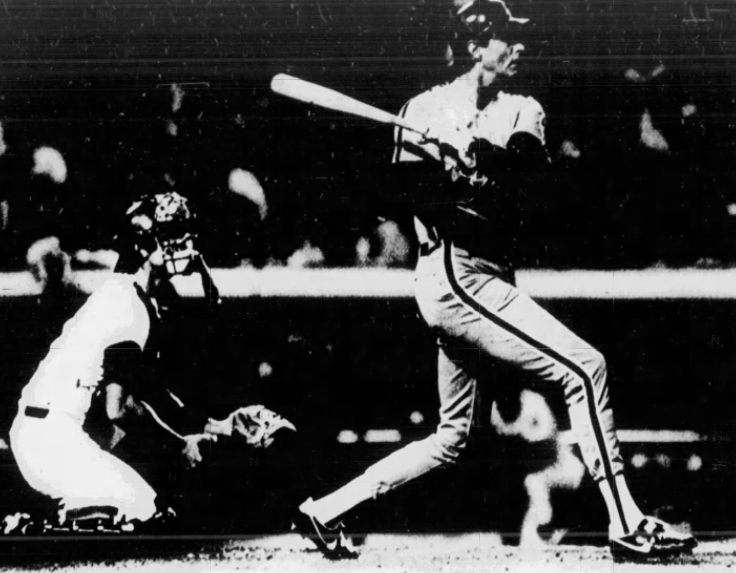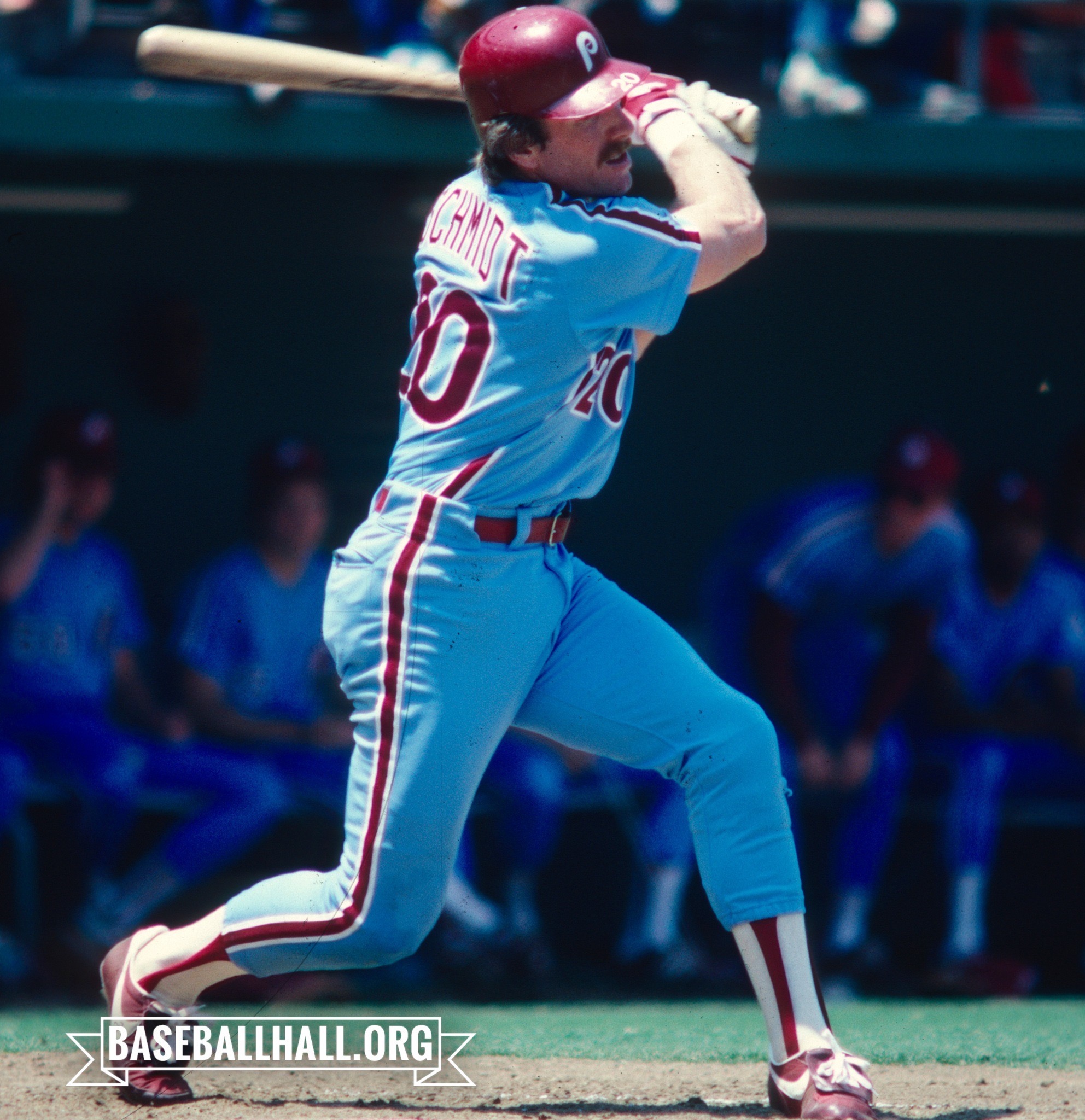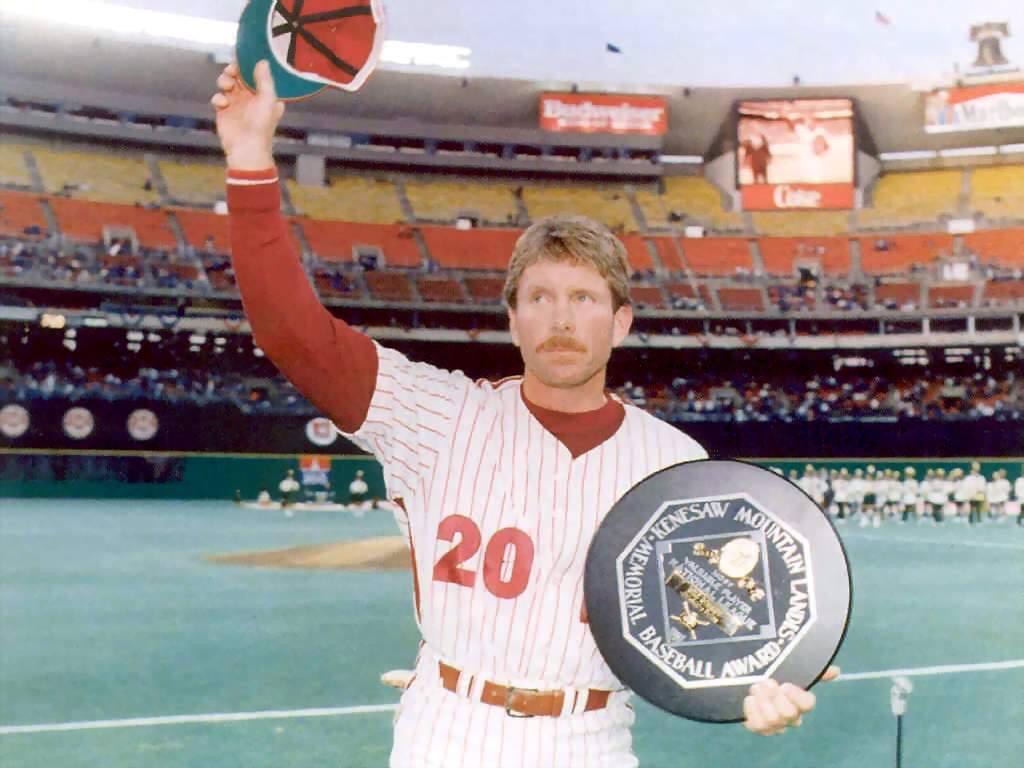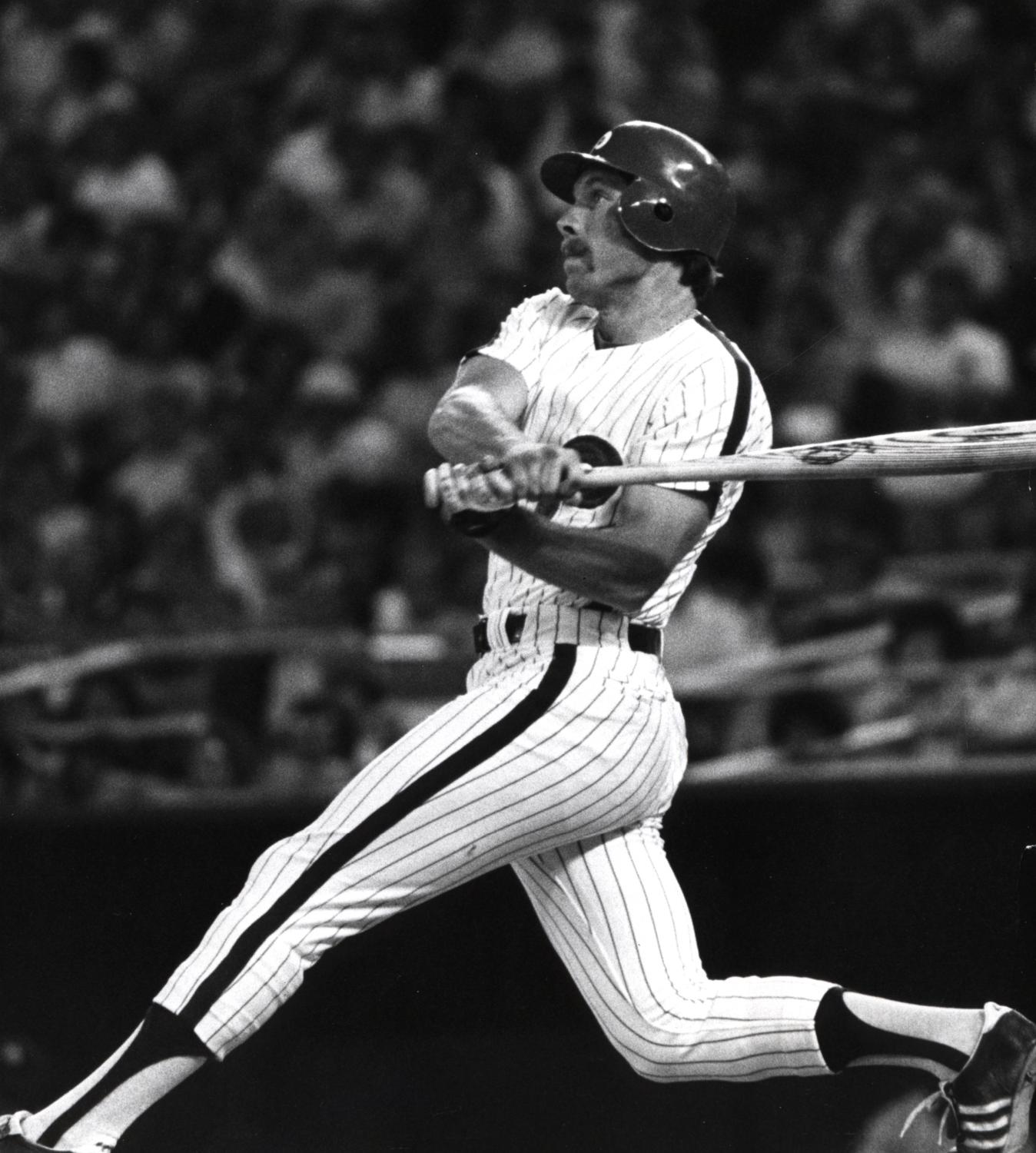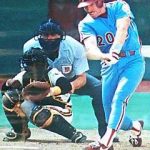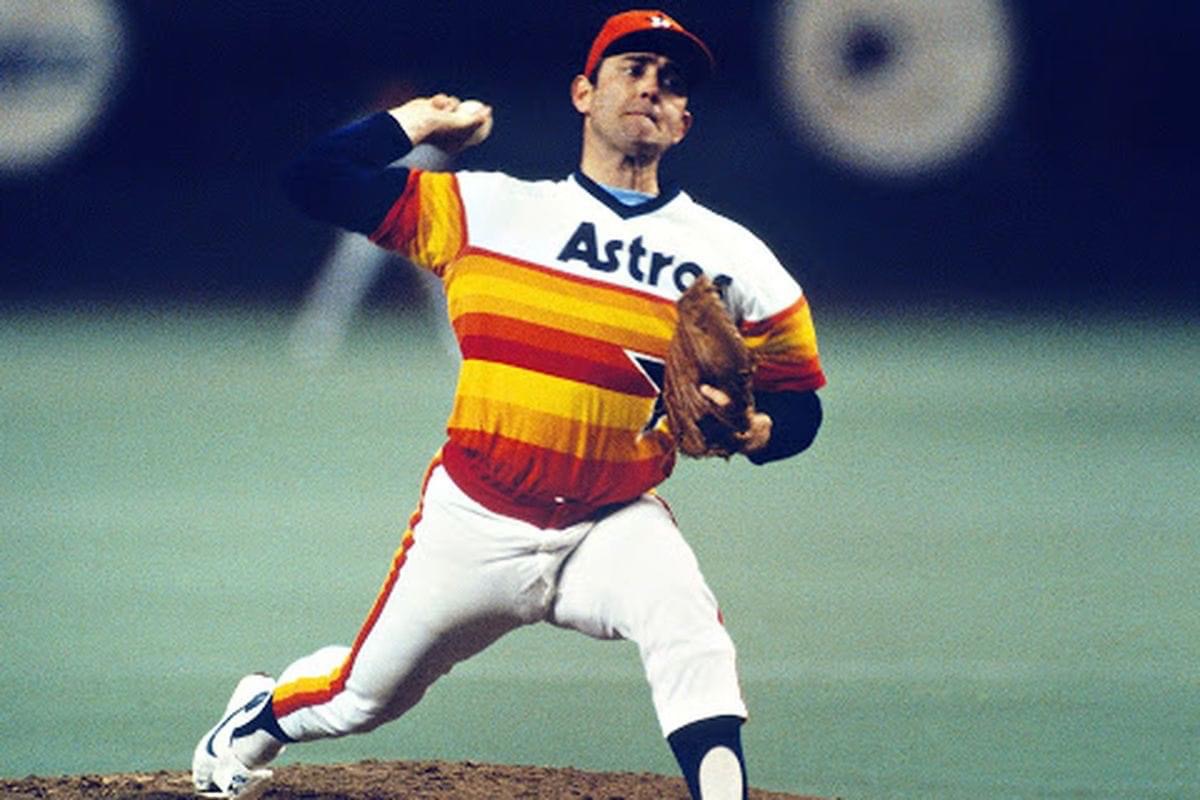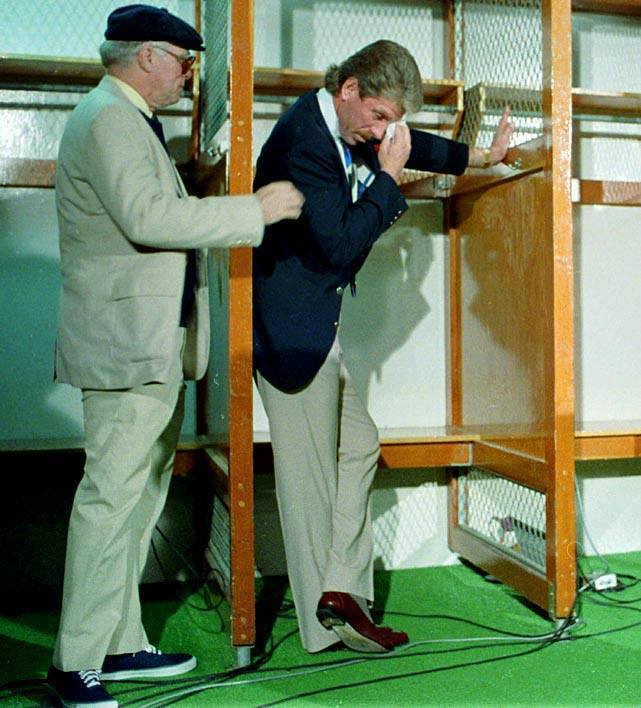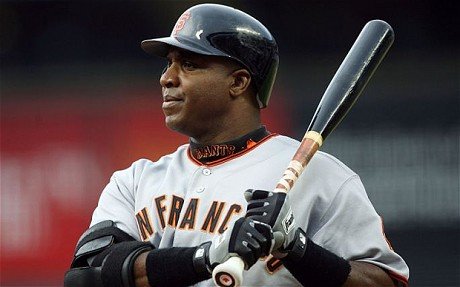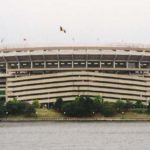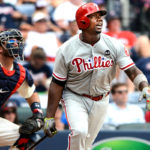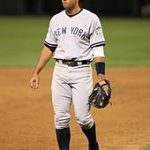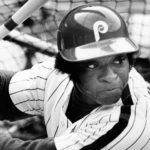Mike Schmidt Biography
Mike Schmidt
Positions: Third Baseman and First Baseman
Bats: Right • Throws: Right
6-2, 195lb (188cm, 88kg)
Born: September 27, 1949 in Dayton, OH
Draft: Drafted by the Philadelphia Phillies in the 2nd round of the 1971 MLB June Amateur Draft from Ohio University (Athens, OH).
High School: Fairview HS (Dayton, OH)
School: Ohio University (Athens, OH)
Debut: September 12, 1972 (10,926th in MLB history)
vs. NYM 3 AB, 1 H, 0 HR, 0 RBI, 0 SB
Last Game: May 28, 1989
vs. SFG 3 AB, 0 H, 0 HR, 0 RBI, 0 SB
Hall of Fame: Inducted as Player in 1995. (Voted by BBWAA on 444/460 ballots)
Full Name: Michael Jack Schmidt
Nicknames: Schmitty
Nine Players Who Debuted in 1972
Dwight Evans
Buddy Bell
Mike Schmidt
Bob Boone
Gary Matthews
Davey Lopes
Goose Gossage
Rick Reuschel
Garry Maddox
All-Time Teammate Team
Coming Soon
Notable Events and Chronology for Mike Schmidt Career
Considered by many baseball experts to be the finest all-around third baseman in the history of the game, Mike Schmidt excelled both at the plate and in the field throughout his 18-year major-league career, spent entirely with the Philadelphia Phillies. Schmidt’s 548 home runs and .527 career slugging percentage are both records for third basemen, and his 1,595 runs batted in tie him with George Brett for the most compiled by any player who ever manned the position. A fearsome hitter, Schmidt led the National League in home runs a record eight times, while also topping the senior circuit in runs batted in four times, on-base percentage three times, slugging percentage five times, and walks four times. More than just an exceptional offensive performer, Schmidt also captured 10 Gold Gloves, the most by any National League third baseman. A three-time MVP winner, the Hall of Fame third baseman won the trophy for the first time in 1980, when he led the Phillies to their first world championship by establishing career highs with 48 home runs and 121 runs batted in. Yet, in spite of his many accomplishments, Schmidt shared a love-hate relationship with the Philadelphia faithful throughout much of his career.
Born in Dayton, Ohio on September 27, 1949, Michael Jack Schmidt grew up a huge fan of the Cincinnati Reds, and of Frank Robinson, in particular. That Schmidt lived long enough to see Robinson play is something of a miracle. Spending most of his youth in a sleepy, tree-lined, middle-class neighborhood in Dayton, Schmidt almost lost his life at the age of five when he foolishly climbed a tree in his backyard and grabbed on to a 4000-volt power line. Knocked unconscious by the shock, the youngster fell limp to the ground. However, the impact of the fall restarted his heart. Reflecting back on the incident, Schmidt later said, “I’ve never thought that I was given a second chance because I was supposed to do something great in my life. But I’ve looked back and wondered why that stupid little kid didn’t die. Maybe that’s the reason I’ve always worked so hard – because I don’t want to think that I wasted that chance.”
Schmidt certainly made the most of his second opportunity. After graduating from Fairview High School in his hometown, he enrolled at Ohio University, where he played mostly shortstop. The Phillies selected Schmidt in the second round of the 1971 Major League Baseball Draft with the 30th overall pick. But, with Larry Bowa firmly entrenched at shortstop at the big-league level, the team converted Schmidt into a third baseman shortly after it assigned him to its farm system.
Schmidt advanced rapidly through the minor leagues, joining the Phillies for the first time less than two years later, on September 12, 1972. He struggled over the course of the season’s final three weeks, batting just .206, with only one home run in 40 total plate appearances. Schmidt’s struggles at the plate continued the following year, as he batted only .196, while striking out 136 times in his first full season. Nevertheless, the 23-year-old third baseman displayed an ability to hit the long ball, compiling 18 home runs.
Schmidt’s offensive production improved markedly in 1974, a season in which he developed into one of the National League’s top sluggers. Blessed with extraordinary physical strength, the 6’2″, 205-pound Schmidt had the ability to hit a ball as far as anyone in the game. Playing in Houston’s Astrodome on June 10, 1974, the righthanded slugger hit a pitch into a public address speaker suspended 117 feet above and 329 feet away from home plate. The ball then fell to the field, where, by the Astrodome’s ground rules, it remained in play. Although Schmidt only reached first base, experts subsequently estimated that the ball likely would have traveled more than 500 feet had its progress not been impeded.
[saf]
Schmidt ended up finishing the 1974 campaign with a league-leading 36 homers, topping the circuit in that category for the first of three straight times. He also knocked in 116 runs, scored 108 times, raised his batting average to .282, stole 23 bases, and led the N.L. with a .546 slugging percentage, en route to earning his first All-Star nomination and a sixth-place finish in the league MVP voting. Schmidt also demonstrated a great deal of patience at the plate, walking more than 100 times for the first of four consecutive seasons. However, Schmidt also struck out a league-leading 138 times, frequently incurring the wrath of the hometown fans with his propensity for whiffing in crucial situations.
Schmidt hit a total of 76 home runs the next two seasons, leading the league in that category each year. He started off the 1976 campaign particularly hot, hitting 12 homers in Philadelphia’s first 15 games, including four in one April 17 contest. He also knocked in a total of 202 runs those two seasons, scored 205 times, and surpassed 100 walks each year, while stealing a career high 29 bases in 1975. Nevertheless, the beleaguered third baseman continued to draw the ire of the Philadelphia faithful by leading the league in strikeouts both years, with totals of 180 and 149, respectively, while posting batting averages of just .249 and .262.
The fact that Schmidt was the Phillies best player didn’t seem to matter to the Philadelphia fans, who invariably took out their frustrations over the team’s failures on the third baseman. Even a third-place finish in the league MVP balloting, the first of 10 consecutive Gold Gloves, and a .308 batting average during Philadelphia’s three-game playoff loss to Cincinnati (the team’s first postseason appearance in 26 years) in 1976 failed to endear Schmidt to the fans.
Yet, Schmidt seemed to take his lack of popularity in stride, rarely displaying any emotion on the field and demonstrating no ill will towards the Philly faithful. In fact, he even expressed his admiration for them on one particular occasion, stating, “They read their sports pages, know their statistics and either root like hell or boo their butts off. I love it. Give me vocal fans, pro or con, over the tourist types who show up in Houston or Montreal and just sit there.”
Still, the behavior of the fans occasionally sparked a reaction from Schmidt, who referred to them on one particular occasion as “beyond help,” while also calling Veterans Stadium a “mob scene.” However, he ingratiated himself to the Philly fanatics shortly thereafter by displaying his sense of humor. The first time Schmidt took the field after making those comments, he emerged from the Phillies dugout wearing a wig and sunglasses, as if trying to hide from the “boo-birds.” In response, the Veterans Stadium crowd erupted in laughter and gave Schmidt a standing ovation.
Schmidt’s acceptance of his plight enabled him to focus solely on his on-field performance, thereby allowing him to further develop his all-around game. He placed among the league leaders in home runs, runs batted in, and runs scored in both 1977 and 1979, establishing new career highs in the second of those seasons with 45 home runs and a league-leading 120 bases on balls. Continuing his string of consecutive Gold Glove campaigns, Schmidt also excelled in the field. Displaying outstanding range and a powerful throwing arm, he annually finished among the leaders at his position in both putouts and assists, developing a particularly strong reputation in the process for adeptly barehanding balls bounced slowly towards him and firing laser beams across the diamond to nip opposing batters at first base.
Coming off one of his finest seasons in 1979, Schmidt ranked among the game’s top sluggers and most complete players. Nevertheless, his tremendous work ethic did not permit him to rest on his laurels. Schmidt later acknowledged, “If you could equate the amount of time and effort put in mentally and physically into succeeding on the baseball field and measured it by the dirt on your uniform, mine would have been black.”
Schmidt’s ambition was further fueled by the addition of Pete Rose to the Philadelphia roster via free agency prior to the start of the 1979 campaign. Rose, a two-time world champion as a member of the Cincinnati Reds, provided additional inspiration to his new teammate when he stated, “Mike Schmidt is the best player in the National League today. There’s no question about that. He honestly doesn’t realize how much ability he has. All he has to do is get the most out of those abilities on a daily basis because, believe me, he can play. He can do it all, and he’s just starting to want to more and more.”
Despite hitting 45 home runs the previous year, Schmidt decided to tinker with his batting style prior to the start of the 1980 season. Always a dead pull-hitter, the powerful
righthanded batter studied the hitting style of the late Roberto Clemente, who tended to lean in towards the pitcher’s delivery and drive the ball with power to all fields. Standing deep in the batter’s box and turning his back slightly towards the opposing pitcher while wiggling his posterior ever so slightly, Schmidt adopted a similar batting style to that of Clemente. The Philadelphia third baseman’s new approach to hitting paid immediate dividends. Not only did Schmidt establish new career highs with a league-leading 48 home runs and 121 runs batted in, but he also batted .286, scored 104 runs, and topped the circuit with 342 total bases and a .624 slugging percentage. Schmidt’s dominant performance led the Phillies to the National League pennant, thereby earning him league MVP honors. He then punctuated his great year by capturing World Series MVP honors by batting .381, hitting two homers, and driving in seven runs during Philadelphia’s six-game victory over Kansas City in the Fall Classic.
Schmidt followed up his greatest season by performing brilliantly again during the strike-shortened 1981 campaign. Appearing in only 102 games, Schmidt earned league MVP honors for the second straight time by batting a career high .316 and topping the circuit with 31 homers, 91 runs batted in, 78 runs scored, 73 walks, a .435 on-base percentage, and a .644 slugging percentage.
Schmidt continued to excel in each of the next four seasons, averaging 36 home runs, 99 RBIs, and 99 runs scored, while batting below .277 just once. He won two more home run titles, led the league in runs batted in and slugging percentage again, and topped the circuit in walks and on-base percentage two more times each. The All-Star third baseman then captured his third Most Valuable Player Award in 1986, even though the Phillies finished well out of contention in the N.L. East. Schmidt led the league with 37 homers, 119 runs batted in, and a .547 slugging percentage, batted .290, scored 97 runs, and committed only eight errors in the field, en route to earning his final Gold Glove Award.
He had his last big year in 1987, hitting 35 home runs, driving in 113 runs, and batting .293.
An injured rotator cuff limited Schmidt to only 108 games in 1988. The 38-year-old third baseman finished the year with just 12 home runs, 62 runs batted in, and a .249 batting average. Schmidt began the following season in similar fashion, compiling only six homers, 28 RBIs, and a .203 batting average in his first 42 games, before his great pride forced him to suddenly announce his retirement in San Diego on May 29. Showing a rare display of emotions during his retirement speech, Schmidt tearfully stated, “I could ask the Phillies to keep me on to add to my statistics, but my love for the game won’t let me do that.”
Despite his poor start and subsequent retirement, the fans again voted Schmidt to the National League All-Star Team. Although Schmidt participated in the game’s opening ceremony, he demonstrated his respect for the sport and his strong sense of propriety by electing not to take part in the contest.
In addition to his 548 home runs and 1,595 runs batted in, Schmidt ended his career with 1,506 runs scored, a .267 batting average, and a .380 on-base percentage. He surpassed 30 homers 13 times, topping the 40-mark on three separate occasions. Schmidt also knocked in more than 100 runs nine times, scored more than 100 runs seven times, and drew more than 100 bases on balls on seven separate occasions. Schmidt appeared in 12 All-Star games, and, in addition to winning three MVP Awards, he finished in the top 10 in the voting six other times.
Shortly after his retirement, Schmidt spent one year serving as a member of the Phillies broadcast team on the now-defunct PRISM network. Philadelphia hired him more than a decade later to work for several weeks each spring training as a hitting coach. In October 2003, Schmidt was named manager of the Clearwater Threshers, a Single A team within the Phillies minor league system. He managed them in the 2004 season and then resigned.
Schmidt has remained in the public spotlight in subsequent seasons, occasionally expressing his thoughts on various baseball controversies. In addition to supporting the reinstatement of Pete Rose to baseball, Schmidt addressed the subject of steroids during a July 2005 appearance on Bob Costas’ HBO show Costas Now. The Hall of Fame third baseman raised a few eyebrows when he stated, “Let me go out on a limb and say that if I had played during that era I would have taken steroids…We all have these things we deal with in life, and I’m surely not going to sit here and say to you guys, ‘I wouldn’t have done that.'” Later, though, Schmidt somewhat recanted that statement, saying in his 2006 book, Clearing the Bases: Juiced Players, Shrinking Ballparks, Sham Records, and a Hall of Famer’s Search for the Soul of Baseball, that he understood the desire to get a competitive advantage even though he could not condone breaking the rules to do so.
Mike Schmidt did not need a competitive edge over his opposition during his playing days. As Dave Anderson wrote in The New York Times after Schmidt announced his retirement from the game: “No other third baseman ever did what he (Schmidt) did with both his bat and his glove. Not Brooks Robinson, not Eddie Mathews, not Pie Traynor.”
@ET-DC@eyJkeW5hbWljIjp0cnVlLCJjb250ZW50IjoicG9zdF90YWdzIiwic2V0dGluZ3MiOnsiYmVmb3JlIjoiTGVhcm4gTW9yZSBhYm91dCB0aGUgdGVhbXMsIHBsYXllcnMsIGJhbGwgcGFya3MgYW5kIGV2ZW50cyB0aGF0IGhhcHBlbmVkIG9uIHRoaXMgZGF0ZSBpbiBoaXN0b3J5IC0gLSAtIC0gLSAtIC0gIiwiYWZ0ZXIiOiIiLCJsaW5rX3RvX3Rlcm1fcGFnZSI6Im9uIiwic2VwYXJhdG9yIjoiIHwgIiwiY2F0ZWdvcnlfdHlwZSI6InBvc3RfdGFnIn19@
Factoids, Quotes, Milestones and Odd Facts
Mike Schmidt was the personification of talent at the hot corner, possessing a combination of Eddie Mathews’ power and the Gold Glove ability of Brooks Robinson. He had enough finesse to win ten Gold Gloves, and his brute strength enabled him to rack up more than 500 career home runs. He won three Most Valuable Player Awards, including back-to-back honors at his peak, and led the league in homers eight times.
Played For
Philadelphia Phillies (1972-1989)
Similar: Eddie Mathews
Linked: Eddie Mathews, George Brett, Matt Williams, Scott Rolen
Best Season, 1981
Schmidt was having his best season in 1981, when the strike split the schedule. So for numbers sake, we’ll pick ’80, which was pretty damn good too. Schmidt won the MVP that year, belting 48 homers and driving in 121 runs – both leading the NL. He batted .286 and posted a .624 slugging percentage, also tops. He scored 104 runs and even stole 12 bases, while winning the Gold Glove. In the World Series he batted .381 with two homers and seven RBI in six games. He was at the top of his game.
Awards and Honors
1976 NL Gold Glove
1977 NL Gold Glove
1978 NL Gold Glove
1979 NL Gold Glove
1980 NL Gold Glove
1980 NL MVP
1980 ML WS MVP
1981 NL Gold Glove
1981 NL MVP
1982 NL Gold Glove
1983 NL Gold Glove
1984 NL Gold Glove
1986 NL Gold Glove
1986 NL MVP
Post-Season Appearances
1976 National League Championship Series
1977 National League Championship Series
1978 National League Championship Series
1980 National League Championship Series
1980 World Series
1981 National League Division Playoffs
1983 National League Championship Series
1983 World Series
Full Bio
Schmidt helped lead the Phillies to the post-season six times between 1976 and 1983, with two World Series appearances. In 1980 his monster season led the Phillies into the Fall Classic, where they vanquished George Brett (his rival for third base supremacy) and the Royals. It was the Phillies first and only World Series title.
In 1980, he broke Eddie Mathews’ record for most homers by a third baseman in a season when he belted 48. That season he also captured his first RBI crown with 121 runs driven in which complemented his .624 slugging percentage and 17-game winning RBI. Then, in 1981, in the strike-shortened season, he led the league in total bases (228), walks (73), intentional walks (18), home runs (31), runs (78), RBI (91) and slugging percentage (.644) – all while hitting .316. Not bad for a single season of work.
Schmidt later won the 1986 MVP award, based on his .290-37-119 triple crown stats. That season marked the fourth time he had won two legs of the triple crown.
A muscular right-handed slugger, Schmidt was graceful in the field. He was expert at fielding bunts bare-handed. He had a very strong arm and was durable – playing in 150 or more games ten times. His strong baserunning was also overlooked, he twice stole 20 bases, and finished with 174 thefts.
Early in his career, Schmidt was a free-swinger, once whiffing 180 times (1975). But he worked hard to make himself a complete player. In the 1970s he batted .255 and averaged 143 K’s per 162 games. In the 1980s he batted .277 and averaged 114 strikeouts.
Feats: Schmidt belted four homers on April 17, 1976, against the Cubs in Wrigley Field. He colected five hits in the game and drove in eight runs.
Hitting Streaks
17 games (1979)
Transactions
Selected by Philadelphia Phillies in the 2nd round of the free-agent draft (June 8, 1971); Granted free agency (November 4, 1988); Signed by Philadelphia Phillies (December 7, 1988).
Data courtesy of Restrosheet.org
Most Walk-Off Home Runs when Schmidt retired
Jimmie Foxx……..12
Mickey Mantle……12
Stan Musial……..12
Frank Robinson…..12
Babe Ruth……….12
Tony Perez………11
Dick Allen………10
Harold Baines……10
Reggie Jackson…..10
Mike Schmidt…….10
All-Star Selections
1974 NL
1976 NL
1977 NL
1979 NL
1980 NL
1981 NL
1982 NL
1983 NL
1984 NL
1986 NL
1987 NL
1989 NL
Replaced
Don Money was traded to the Brewers during the 1972 off-season, to make room for Schmidt at third base. It was a bad trade for the Phillies, as Money went on to a solid career for Milwaukee, while none of the players Philadelphia received really panned out. Of course, Schmidt was more than adequate at third base, to say the least.
Replaced By
Schmidt was still the Phillies starting third baseman when he retired in the middle of the 1989 season. Charlie Hayes took his spot, but never hit more than a dozen homers in a season and was run out of town after a few years.
Best Strength as a Player
So many strengths: power, agility at third, his throwing arm. But we’ll take his power above all.
Largest Weakness as a Player
I guess you could say he struck out a lot, but it didn’t seem to hurt his team.
Other Resources & Links
Coming Soon
If you would like to add a link or add information for player pages, please contact us here.



